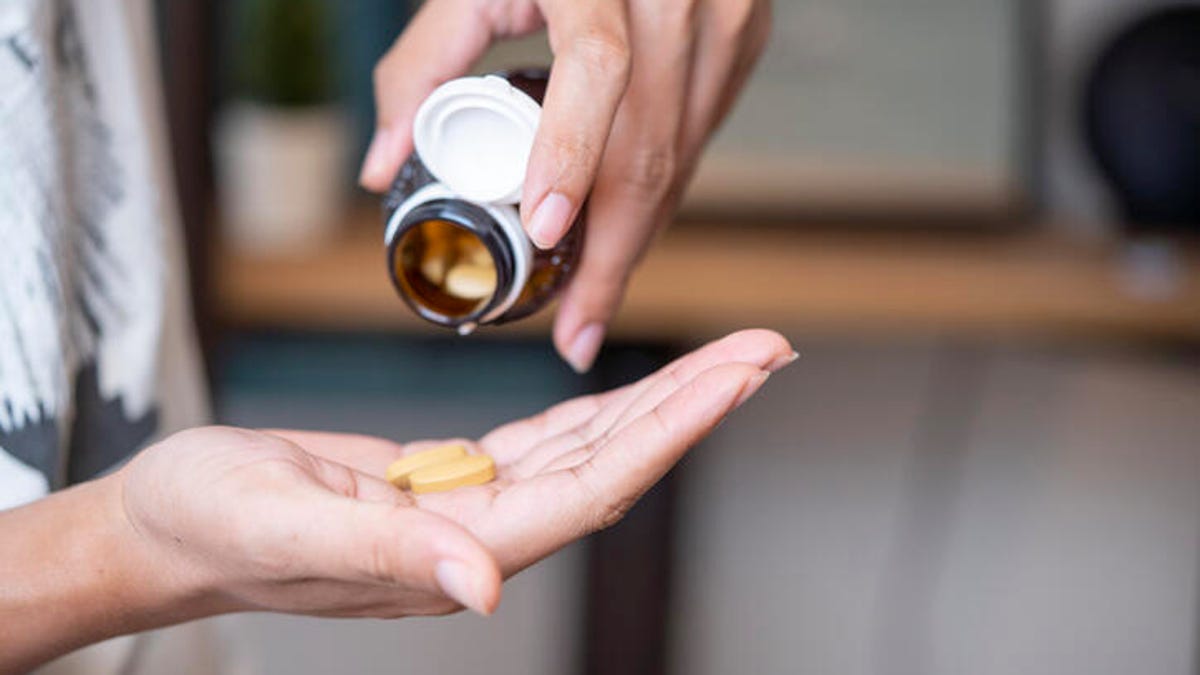Should you take quercetin for immune health? What you need to know
This antioxidant, found in many foods, could boost your immune health.

Quercetin is a flavonoid that may support immune health.
Pandemic or not, supplements can be confusing. And when it comes to immune health, it seems like there's a new supplement on the market everyday, so it's hard to weed out which are worth buying. Taking targeted supplements that are science-backed can be a smart move to keep yourself well, especially as flu season is approaching.
One supplement you may have heard of recently is quercetin -- a flavonoid that acts as a powerful antioxidant and has reported benefits for immune health, lowering inflammation and -- in some cases -- fighting cancer. To find out if it's worth adding to your supplement lineup, keep reading for more on the science behind quercetin and insights from dietician nutritionist, Amy Shapiro.
What is quercetin?
Quercetin is a flavonoid found naturally in many plants and foods like apples, grapes and broccoli. "It donates electrons to free radicals, preventing inflammation and histamine development in the body," Shapiro says.
Quercetin is popular as a supplement, often combined with other nutrients such as bromelain or vitamin C because it is not easily absorbed and used in the body on its own. "When paired with vitamin C, it is more potent [in the body] and vitamin C helps to regenerate quercetin within the body," Shapiro says.
Health benefits
Research shows quercetin has many health benefits. "It is anti-inflammatory, rich in antioxidants (and therefore fights disease and signs of aging), decreases allergy symptoms, decreases risk of cancer, decreases risk of infection including respiratory, skin and GI infections and may decrease risk for heart disease and high blood pressure," Shapiro says.
Other reported benefits include
- Anti-allergy: Research shows that quercetin may block histamine, making it a natural allergy relief or preventive alternative to medications.
- Anti-inflammatory: Research on animals shows that quercetin has anti-inflammatory properties. In human studies, it reduced inflammation in men but it did not seem to help reduce inflammation in women with rheumatoid arthritis.
- Help slow the growth of cancer cells: Some studies suggest that quercetin can slow the growth of several different types of cancers.
- Antibacterial and antiviral: Quercetin has antibacterial and antiviral properties, making it ideal for avoiding infections and warding off sickness.
Red onions are a natural source of quercetin.
How to get enough quercetin
Quercetin is naturally found in many foods you might already eat. By adding the foods listed below to your diet, you can increase your quercetin intake.
Amounts are milligrams per 100-gram serving:
- Red onions: 32 mg
- Apples: 4 mg
- Red grapes: 3.5 mg
- Blueberries: 3 mg
- Capers: 180 mg
- Kale: 7 mg
- Lovage leaves: 170 mg
- Buckwheat: 23 mg
- Black tea: 2 mg
According to Shapiro, if you're committed to eating a lot of the fruits and veggies on this list, you will probably consume about 100 to 300 mg of quercetin daily. So if you're aiming for 500 mg a day, that will be trickier with food alone -- you'll likely need a supplement too.
"Most people do not eat enough plants during the day, so a supplement would make sense. Supplements usually pair Quercetin with vitamin C or Bromelain which help to improve absorption and potency. Most people can take 500 mg to start and can work their way up to 1000 mg from a supplement daily to get the health protective effects," Shapiro says.
Editor's note, August 31, 2020: A previous version of this article included information about quercetin being studied as a potential preventative for contracting the coronavirus or as treatment for COVID-19, the disease the virus causes. Because there is not sufficient scientific research to support that quercetin can prevent or treat the coronavirus, we've removed that from the article.

